Following My Father: Anchorage and San Francisco
Ninth and Tenth Grades
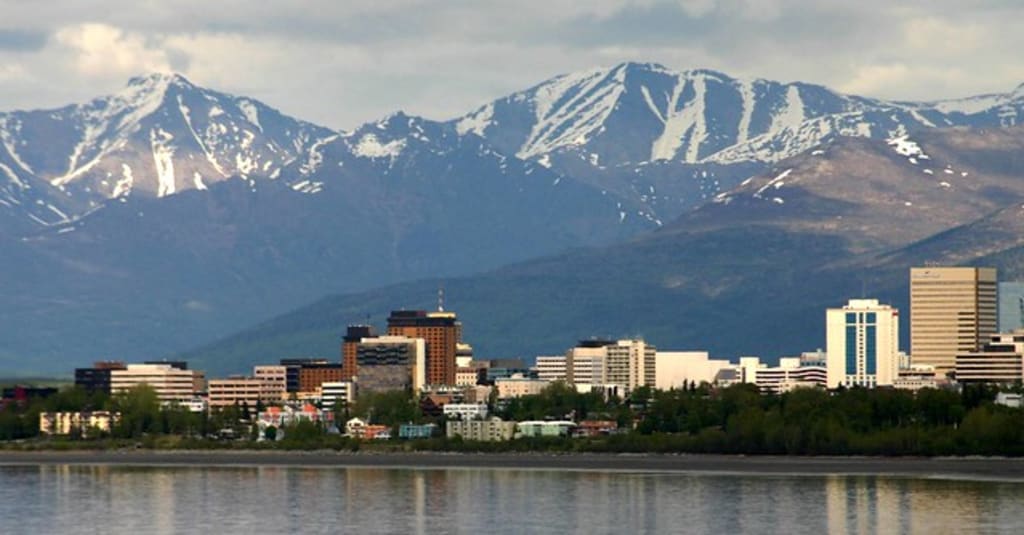
"We're moving, get packing," greeted me one day when I came home from school to our cozy cottage in Capitola, California.
"Where to this time?"
"Daddy got a job in Anchorage."
After packing our thrift store trunks, saying teary goodbyes to my friends, and hugging Mom and Dad farewell, I headed to my sister's apartment in San Francisco to stay for a week or two.
Mom and Dad flew up to Alaska ahead. By the time I got to Anchorage, they were staying in a high rise hotel at the edge of downtown.
John saw me off at the airport. He was my first real boyfriend. We were going to miss each other terribly.
The flight was the longest I had ever taken by myself. That aspect felt pretty exciting. Overall, though, my excitement was replaced by fear.
Mile after mile, hour after hour of mountain ranges covered in snow. I watched from the plane window as I flew to Anchorage. "What would happen if we crashed?" was the question that revolved through my mind. I could picture us down there sitting by the broken up plane, cold and with nothing to eat, freezing and waiting for a rescue that might never come in time.

I breathed a sigh of relief to see a row of bright blue lights along the runway at the tiny airport in Anchorage. In the dark, they shone happily at the end of my nerve-wracking flight.
But my relief was soon replaced with confusion and anxiety. No parents waited for me, and I had no idea why. As I waited, I looked out the windows of the small airport into the pitch black darkness. Anchorage already felt different than any place I had ever been.
A cab driver approached me and said my parents couldn't make it, that they sent him to take me to the hotel. Nowadays, no one would allow their child to get into a strange man's taxi. Even then it was unusual, I think. But I felt pretty (and naively) confident that I could take care of myself, being a child of unpredictable parents who often put me in crazy situations.
Arriving at the hotel at night allowed me to sleep better than I did my whole stay in Anchorage. When I woke up and looked out the window it was a different story. We arrived in Anchorage in 1966, two years after the massive earthquake and tsunami that slid half of downtown into the strait. All I saw from the hotel was a huge slope of mud, beyond which was a vast, cold, desolate expanse of sea. That sight began my distaste for Anchorage.
Throughout the city, too, crevasses caused by the earthquake ran through residential neighborhoods. These topsy-turvy experiences, combined with a feeling of being precariously perched at the edge of the earth, caused me to feel extremely uncomfortable.
The Great Alaskan Earthquake of 1964 shook at the intensity of 9.2. It was what is called a megathrust earthquake, the most destructive type. It is the most powerful earthquake ever recorded in North America, and the second most powerful ever recorded in the world.
The earthquake released about 500 years of stress buildup; six hundred miles of fault ruptured at once. Ground failures, such as landslides, fissures, and soil liquefaction, caused major damage to structures, infrastructure, and the landscape. Some coastal towns were completely lost.
Encountering the remaining evidence of the earthquake magnified my anxieties. Not only was I standing at the edge of the world, but even the ground was not to be trusted.
Anchorage felt alien in so many ways. One day Dad took me to see his office, a few blocks off 4th Avenue. On one corner took a gigantic stuffed grizzly! It was a reminder to me of just how far we were from California. In another place, like, say, Yellowstone, I would have experienced the bear as just a beautiful example of a fierce and powerful wild animal.
But things got worse. Instead of being a freshman in high school, I was demoted to junior high, with all its torturous dynamics. There were only five weeks left in the school year. The kids had no interest in making friends, being so jazzed and busy with end-of-the-year preparations. What did they have in common with a girl from California, anyway?
I found myself on the school bus, something I associated with what we now call nerdiness. Plus, my parents neglected to buy me a coat for that forty degree weather. I felt my parents abandoned me to fend for myself in that cold, strange world.
To take German, I had to board another dreaded school bus for the high school. By then I lost interest in schoolwork, and don't remember anything about the class, only images of getting on and off the bus.
I made casual friends with a long-haired girl who lived in her own studio apartment down the hall from her divorced mother's in a high rise. The girl seemed to like living there, but it kind of creeped me out. Was her mother too into men to even share an apartment with her daughter? I was very glad my parents were not divorced, and that Mom would never be that way.
The downtown library was close to the hotel. I decided to read the entire eight-volume set of A History of Philosophy by Charles Copleston! Of course, the books went way over my head, and I soon gave up that ambition.
After a few weeks, we moved to a house next to Delaney Park. The neighborhood was dismal, with no landscaping or trees, and uninteresting houses. Our only furniture were beds and an ugly Formica table that came with the house. The dreariness of the house and neighborhood added to my discontent.
Mom got a nursing job at the Anchorage Medical Center of the Alaska Native Service. The center was built to treat Alaskan Natives who suffered from tuberculosis, which was rampant in rural Alaska.
The medical center no longer treated many TB patients, but all the other maladies that struck the Eskimos. Mom was a great nurse, and treated her patients well, no matter what their ethnicity or background.
By the time we moved into the house, school ended. John flew up from California. What a relief! My parents and I were all touched by his commitment to me.
John's uncle owned a mobile home on a lot in a neighborhood not far from our house. He was away, so John and I had our own private retreat. We spent time there eating snacks, looking at his uncle's collection of Playboy magazines, and inching toward sex.
The only things that saved my sanity were the arrival of John and becoming absorbed in jigsaw puzzles. I stood for hours at the tile breakfast bar poring over my 1,000 piece puzzles. John sometimes stood behind me restlessly. He said he could not see how the pieces fit together.
I took up pen and ink drawing. To make the drawing I did in Anchorage, I used the background white of the paper for the design and black ink for the background of the picture. I conveyed my impression of Anchorage: the half snow-covered mountains looming over the city; a train chugging by along; a pipe like the kind Dad smoked with tendrils of smoke rising from it (I loved the way his cherry tobacco smelled.); a whimsical house much nicer than ours; fields of crops; an ear of corn; a river complete with fish; a wishing well; flowers; a log cabin; and a butterfly.
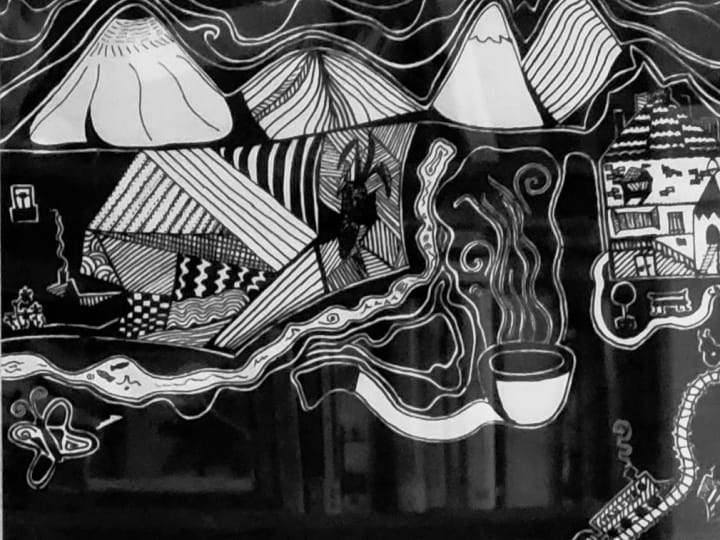
My drawing expressed a friendlier, happier place than I experienced Anchorage to be.
My parents allowed me to paint my room bright yellow in an attempt to cheer me up; it didn’t help.
The constant daylight made it difficult to sleep. The yellow window shades in my room were inadequate to keep it out. Bands of bright light along the sides beamed into my eyes.
One night I went for a walk in nearby Delaney park, an 11-block strip between our neighborhood and downtown. I figured that since it was light, it would be fine. But, when I got to a playground and sat on a bench, a derelict, drunk man came out from behind a log cabin and scared me to death. I started walking, but, to my dismay, he followed me while making lewd remarks. The park stretched on and on; the farther I walked, the faster I went. Finally, I lost him at the end of the park, and made my way home.
There existed little for John and me to do in Anchorage. One night we attended a dance in a little rustic old building. The kids danced nothing like we did in California. The music was country, not a genre we were particularly familiar with, nor liked.
Sometimes we took long walks. But, the dreary neighborhoods depressed me. I became more and more withdrawn. Even John's presence didn't help me much by then.
I demanded my parents send me back to California, even though it meant leaving John behind. He came all that way to be with me. My guilt over leaving him there plagued me no end, but he understood.
On the plane back I sat next to a blond, very attractive young Swedish boy a few years older than me named Lars. That was the first time I found myself flirting with another boy while involved with someone else. I still don't understand why I felt compelled to do that. Was it an ego thing? Did I need validation of my attractiveness? Or was I simply impulsive? I really did not see it as an issue of morality.
By then, it seemed to me that every other place we lived was terrible and the next place nice. My next experience, though, didn't fit that pattern. The next place felt lousy, too.
First, I had to live with my sister Sylvia, whom I maintained a certain dislike for. I felt sick of her judgment and disapproval of me, her overprotectiveness of my nieces, and her sadistic teasing.
My parents returned to California for Winnie's wedding in Palo Alto. After the wedding, my parents moved us into a transient hotel in San Francisco. The apartments there were strange little broken-up spaces, painted in stark white enamel. An odd little man sat behind a window in the lobby. A rickety elevator with an iron gate took us up to our floor.
My parents, i.e., Mom, bought me the oddest thing -- an apricot-colored nylon baby doll nightgown with ruffles and bloomers -- definitely not my style! My tastes were plainer, and certainly without ruffles!
The ruffles were hemmed in nylon thread that poked me as it unraveled. This was the second time someone bought me nightwear I didn't like. The first time, when I was ten, Sylvia gave me a red velvet robe with white fur trim, along the order of Santa Claus's garb. With it she added a puffy cotton nightcap she made.
What I did like about where we lived was that it was on Bush Street, up the hill from Chinatown, one of my favorite places. When Mom worked in the evenings, Dad and I walked down to a tiny deli at the Dragon Gate, the entrance to Chinatown, and bought fat pastrami sandwiches.
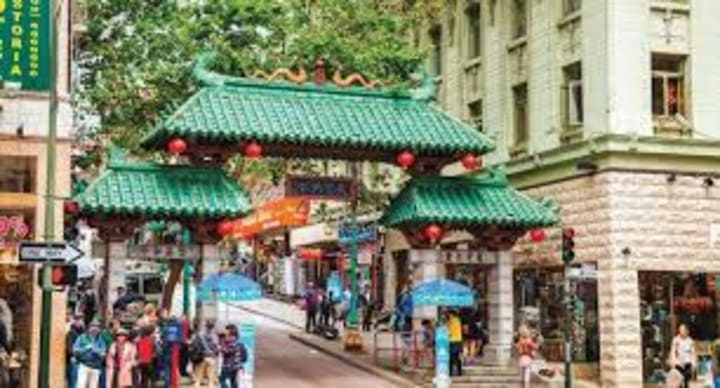
I felt very close to Dad all my life, despite his putting me through the ordeals of repetitive moving. He and I had a special bond. I loved his smell, his intelligence, his kindness to me and to my friends, his generosity, and his fondness for me. I found his presence comforting, almost always.
The short honeymoon period ended abruptly once school started. The schools were overcrowded, and the nearby schools were full. This meant I had to take two buses way across town to high school in the Sunset District. Even my required courses had no space, except for PE, which I hated. I took typing, for which I'm glad, driver's ed, and chorus, none of which furthered my academic progress.
In driver's ed, I had a terrible experience. We had to watch gruesome films of accidents. The idea was to scare us into safe driving, I suppose.
When I was little (before seat belts, by the way), I saw many accidents on the highways. One I remember vividly was where a black man's limb was amputated. The end of his leg lay there on the ground. On the part still attached, the stump was bloody, showing a big round red wound.
I was traumatized by seeing that poor man almost as much as I was when I witnessed a horrifying thing at the age of five. So, when a black man was shown mangled by a wreck, I had to get up and leave the auditorium.
In the hallway my neck tensed up so much it hurt. The tension continued all the up my head and face. It took a long time for it to relax. A teacher came out and with no compassion or sympathy, ordered me to get back inside. I refused. Once my neck relaxed, I walked out of the school.
To get to school, I took the bus along 19th Avenue, crossed the street at an intersection, and walked several blocks to Sunset High. One foggy morning I nearly was hit by a car; the driver didn't see me through the heavy fog.
The school felt unsafe because it was the mid-sixties and there were race riots. Black girls stood in the bathrooms and taunted me, a white girl, and threatened to harm me. I worried I would get stabbed every time I went in there.
The only thing good that happened to me in that school was the day I walked down the hall and heard someone call my name. It was a boy named Miles, a friend from 6th grade in Palo Alto. He had a crush on me, but we remained only friends because I was not interested. At last, I knew someone in that gigantic, cold, unwelcoming school.
My parents and I moved to a slightly nicer apartment on Sutter Street. We lived in that building before for a short time before moving into our apartment on Pacific Heights.
The building was across the street from Breuner's furniture store. Breuner's had not yet become the large chain store it did later. Breuner's was the site of a traumatic experience when I was five.
While my family browsed, I went to the plate glass window, where I observed an old lady's head being squashed by the wheel of a Greyhound bus.
What happened was that the driver forgot to put on the parking brake, or the brake malfunctioned. As the lady got off, the bus started to move, and she was thrown under the bus.
I have never in my life witnessed something as horrible at that.
Our apartment was tiny, consisting of a small kitchen, a larger bedroom, and a miniscule entry hall. At the rear of the building, it overlooked the dreary backs of apartment buildings on the other side of a trashy area.
I became very depressed there, between the dreary apartment and the school I hated, I developed daily severe headaches. Mom took me to Kaiser Hospital, where I took a battery of psychological tests. One of the tests was Draw a Person. I was asked to first draw a figure. I drew John standing in the nude!
Next, I was asked to draw a person of the opposite sex. I drew a caricature of my mother. It kind of looked like the Laughing Lady at the old Playland. She wore a ridiculous, brimmed hat under which lay curly hair. Her dress was equally ridiculous. It had a full skirt and polka dots. Her fat lips smiled.
Needless to say, my drawing looked nothing like my mother. But it revealed some underlying feeling about her. I know I was mad at her a lot as a teenager. I blamed her to some extent for allowing Dad to move us around all over the place. She seemed to regard our moves as adventures, and never seemed to consider the impacts on me.
Years later in graduate school, I took a class in psychological assessment, where I learned to administer and interpret batteries of tests. One of the tests was Draw a Person! I cannot tell you how the test is interpreted because as a psychologist, I am not permitted to give out that information. I can say that the drawings represent how people see themselves and others.
So, what did it mean that I drew John first? I think it meant that I found him comforting, whereas at that time I was too angry at my situation and Mom to represent her accurately, or to want to identify with her.
One afternoon I opened the tiny closet's door. A minuscule spider lowered herself down a slender piece of web. By reflex, I killed it. This made me feel so terrible, I burst into tears.
Years later in therapy I came to discover that my sadness reflected my severe depression and feelings of vulnerability. I somehow identified with the spider, as if I, too, could be squashed like that.
When I went to Sunset High I cut school more days than I went! On the way to school, I frequently got off the bus at Golden Gate Park, unable to bear another day there.
I wandered around the familiar park, walking to the Strybing Arboretum and then past the de Young Museum of Art and the Japanese Tea Garden, where I drank green tea and ate almond cookies and Japanese crackers in the little tea house.
Sometimes I roamed through the California Academy of Sciences.
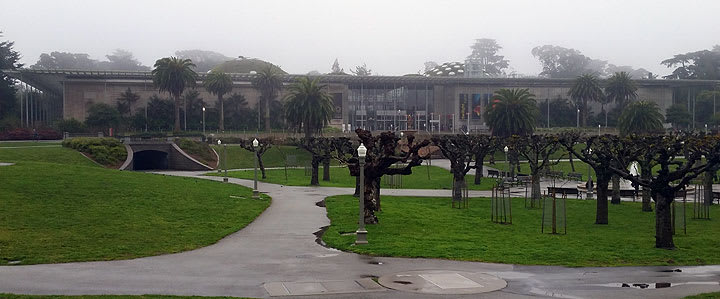
In the Academy of Sciences, near the planetarium is a huge brass pendulum. As I passed it, I remembered when I was five and got my head stuck between two of the posts in the pendulum's enclosure!
Sometimes I walked around the concourse and sat on a picnic table. At one end of the concourse is a stage backed by a large structure. It is called the Spreckel's Temple. It has wonderful acoustics.
When I was a kid, my parents and I, sometimes my sisters, too, often picnicked and listened to concerts there. Many operas and classical concerts were offered.
For the audience to sit on, rows and rows of seats and benches were placed under the arbored trees in front of the stage. We usually sat at a picnic table at the back of the concourse.
On weekends my girlfriends from Presidio Junior High in eighth grade met me downtown, where we walked along Sutter Street to browse in shops or ventured to our old haunts downtown.
Miles sometimes met me, and we, too, roamed Sutter Street down into the financial district. I called Miles "Wall Walker" because as we walked he came closer and closer to me, causing me to veer near the walls of the buildings.
Miles wanted to be romantically involved, and I did not. We remained friends for many years despite our differences in desires.
Miles was a courteous, well-mannered boy. I met him in sixth grade in Palo Alto. My parents liked him. I liked his mother, who lived in the city at that time. We sometimes visited her in her small apartment near Market Street.
I felt sorry for her. She and her former husband had a conflictual divorce, leaving her with few funds. I think she suffered from depression and anxiety. She worked at a low-paying secretarial job.
After school Miles and I walked down to nearby Taraval Street. We had little time, though, due to his father's and step-mother's demands he be home an hour after school ended.
Miles's father was a professor at UC San Francisco. His step-mother stayed at home. She was highly protective of her belongings. Her sofa was covered in plastic. Even so, Miles was prohibited from sitting on it!
John's parents asked me if I could go along on a trip with a friend of his Mom's named Jill. She was moving with her two young daughters (and large dog) from Loveland, Nevada to a friend's log cabin in the Lincoln National Forest in southern New Mexico. She needed our help.
John, his little sister, Jane, and I traveled in the seatless back of Jill's aged Volkswagen van. From San Francisco, we traveled over the Bay Bridge in a wild storm that buffeted the van from lane to lane.
From Berkeley, we drove along Highway 80 to Lake Tahoe. Along the way, we encountered a major snowstorm. We became the last car to be admitted through at Donner Pass. From there we proceeded for a harrowing drive along steep, windy, icy roads. Jill drove way too fast for those conditions, and we were afraid for our lives. We imagined the van sliding over the edge of the road into the canyon below.
Past Truckee, we suffered through the drive down the mountains to Reno under the same conditions. In fact, we drove through snow all the way to New Mexico.
Loveland was in the middle of nowhere. Jill was leaving the ranch where she lived with her husband. We packed up her woven Indian blankets and the other possessions she could fit in the van, along with us and the dog.
Her husband came home as Jill was packing and we were loading the van. He was a tall, slender man, who was much older than Jill. He walked with a cane. I felt very sorry for him. He did not want her to leave, was forlorn, and would be alone in that isolated spot.
On the rest of the trip, John, Jane, and I enjoyed the little girls' company. Jill played what music she could get out there. "Monday, Monday" by the Mamas and Papas, "These Boots Were Made for Walking " by Nancy Sinatra, "You Don't Have to Say You Love Me" by Dusty Springfield, and "Sloop John Be" by the Beach Boys" were some of the popular songs of the day.
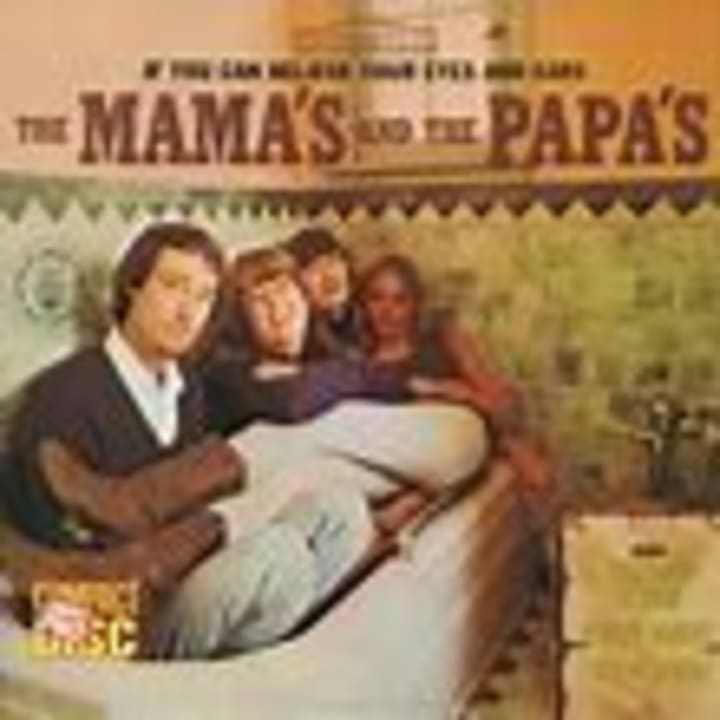
My favorite song of those was "Monday, Monday." The lyrics go like this:
Monday, Monday (bah-da bah-da-da-da)
So good to me (bah-da bah-da-da-da)
Monday mornin', it was all I hoped it would be
Oh Monday mornin', Monday mornin' couldn't guarantee (bah-da bah-da-da-da)
That Monday evenin' you would still be here with me
Monday, Monday, can't trust that day
Monday, Monday, sometimes it just turns out that way
Oh Monday mornin' you gave me no warnin' of what was to be
Oh Monday, Monday, how could you leave and not take me
Every other day, every other day
Every other day, every other day of the week is fine, yeah
But whenever Monday comes, but whenever Monday comes
But whenever Monday comes, you can find me cryin' all of the time
Monday, Monday (bah-da bah-da-da-da)
So good to me (bah-da bah-da-da-da)
Monday mornin', it was all I hoped it would be
But Monday mornin', Monday mornin' couldn't guarantee
That Monday evenin' you would still be here with me
Every other day, every other day
Every other day, every other day of the week is fine, yeah
But whenever Monday comes, but whenever Monday comes
But whenever Monday comes, you can find me cryin' all of the time
Monday, Monday (bah-da bah-da-da-da)
Can't trust that day (bah-da bah-da-da-da)
Monday, Monday (bah-da bah-da-da-da)
It just turns out that way (bah-da bah-da-da-da)
Whoa Monday, Monday (bah-da bah-da-da-da)
Won't go away (bah-da bah-da-da-da)
Monday, Monday (bah-da bah-da-da-da)
It's here to stay (bah-da bah-da-da-da)
Oh Monday, Monday (bah-da bah-da-da-da)
Whoa Monday, Monday (bah-da bah-da-da-da)
The log cabin was set in a snowy field that gently dipped and rose with a creek running through. It was so quiet and peaceful out there.
Jill's friend was a large woman who wore long dresses and a thick, graying braid down her back.
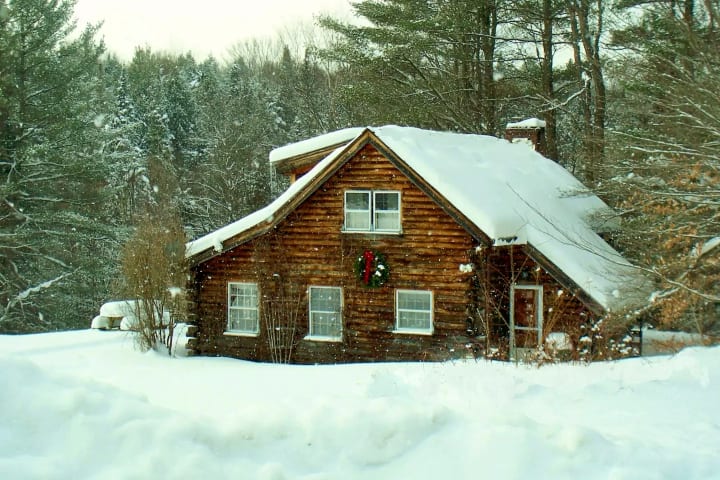
The cabin was decorated with woven blankets on the walls and on the couch and beds. I developed the desire to build and live in a log cabin, and sustained it for many years. Woven items became a taste of mine. Later, my second husband owned some pieces from Yugoslavia. I still have one.
John and I slept on a twin bed next to Jane's. At night, John and I tried to have sex, but it upset Jane too much.
John and I climbed up a mountain, where we discovered a cave. Venturing in, John had a panic attack and began hyperventilating. This was dangerous, especially due to his asthma. Once he could breath, we climbed back down the mountain to the warmth of the cabin and hot cocoa.
To get back to California, John, Jane, and I boarded a Greyhound bus. Jill handed us a $20 bill, inadequate for the long ride. We became so hungry, I stole an egg from a bowl on a counter in a bus stop. This was the one and only time I stole something! I shared the egg with my friends.
The bus made the long journey to Los Angeles, where we changed buses for the long trip north. On the bus, John and I sat together in front of Jane, and took turns sitting next to her. John and I fooled around, feeling a little daring, but safe from Jane's knowledge of it. At least, she said nothing about it.
John's parents picked up him and Jane up in San Jose, and I proceeded on to San Francisco. I had ridden a Greyhound many times, and was used to it.
My parents met me at the station. This was somewhat unusual, as usually a friend and I traveled relatively short distances, and were only gone for a day or two. We knew our way home.
John and I saw Barefoot in the Park with Jane Fonda and Robert Redford. It's a romantic comedy. Jane plays an impetuous, self-centered, and lively, but appealing young newlywed. Robert Redford plays her conservative, upright, and a bit uptight husband. Very funny.
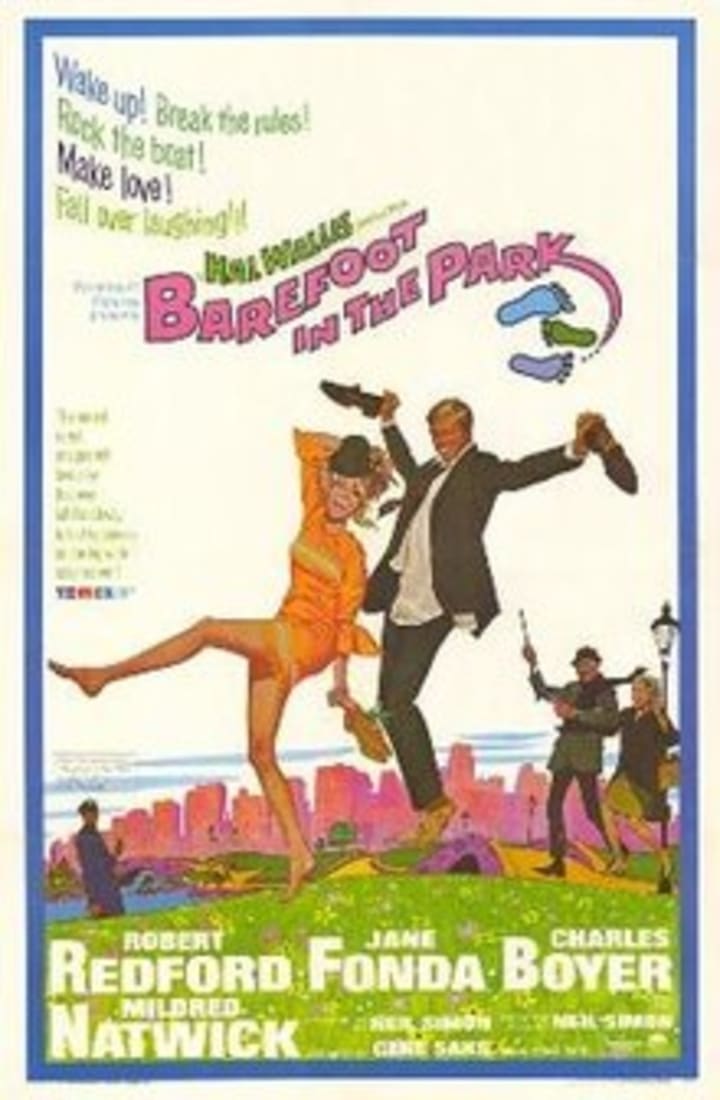
My family and I watched Gone With the Wind at the grand old Fox Theater. The movie had not been shown since it's first release in 1939. It's an epic film. I laughed and cried while watching it.
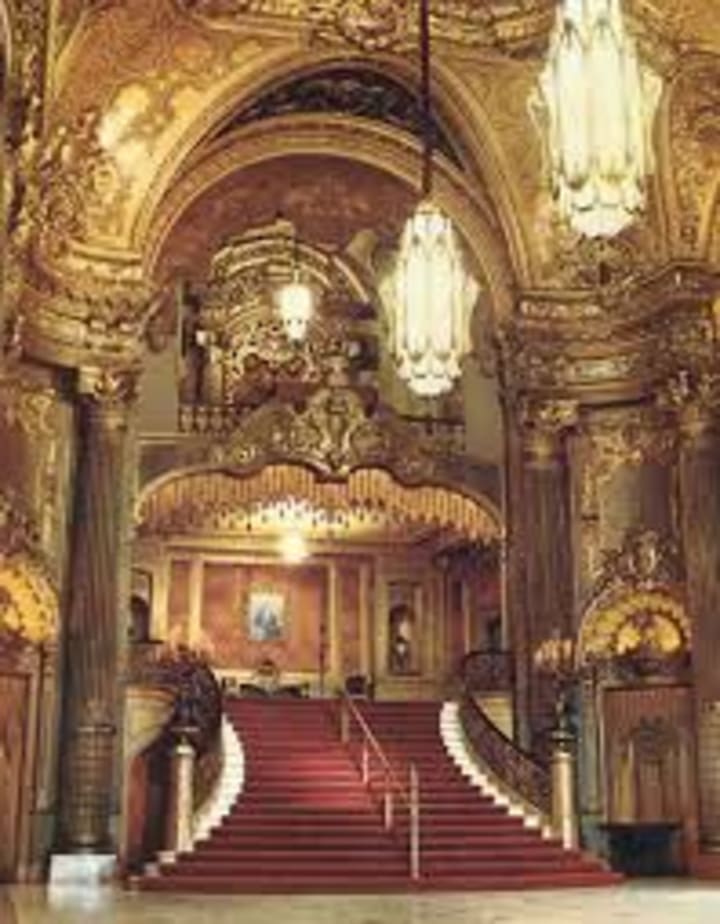
Gone with the Wind is set during the Civil War and Reconstruction. Lavishly produced, it tells the story of one family's tumultuous experience.
Clark Gable, a heartthrob from those days, plays Rhett Butler, a wealthy gambler and scoundrel, who meets Scarlett O'Hara, a beautiful, manipulative, and energetic southern belle, at her family's plantation in South Carolina. Scarlett is played by Vivien Leigh, a gorgeous and highly talented British actress.
The film was criticized as portraying black characters in a stereotypical way. One character who is stereotypical is Prissy, played by Butterfly McQueen. Prissy is a maid who is ditsy, unintelligent, and speaks in a childish voice.
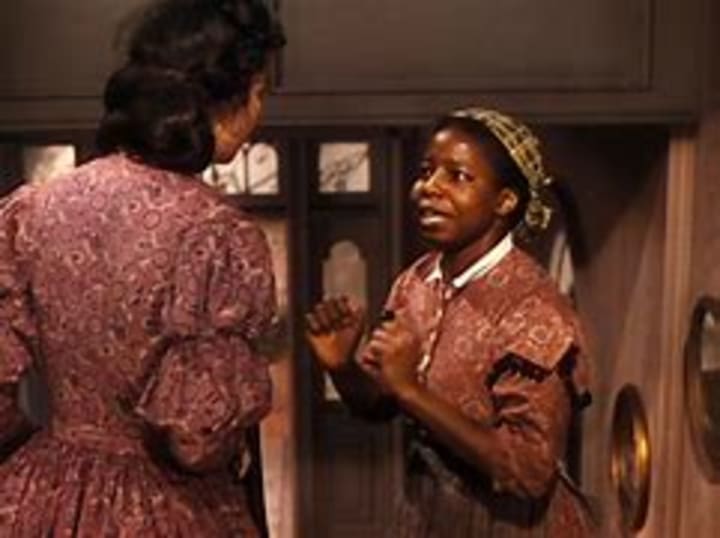
Another character is not, in my opinion, stereotypical -- Mammy, Scarlett's wet nurse and maid, played by Hattie McDonnell, is outspoken and wise. McDonnell won an Oscar for her performance.
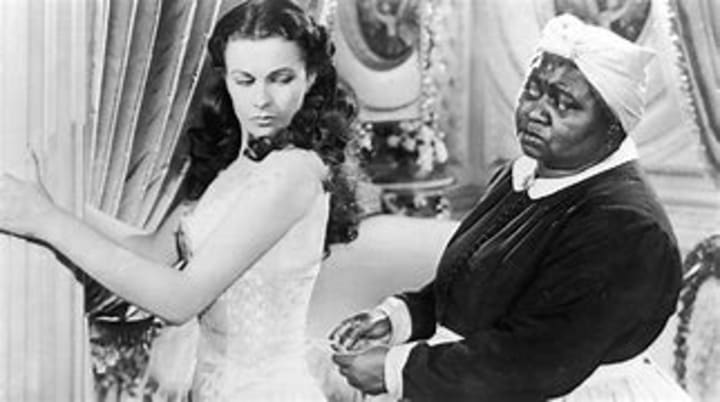
So, that's part of my story. The pattern continued with our moving at least once every year or two, until I graduated from high school and we moved back to San Francisco from a small coastal town in Central California. It was such a relief to go to college and have that stability and independence! There I fell in love with my first husband, a charming Pakistani man, and for once in my life felt secure, for a while.
From San Francisco, we moved to Menlo Park, a city on the San Francisco peninsula.
About the Creator
Caroni Lombard
As a child my family moved often. In my story, I share that experience; what it was like and how we coped.
But my story is not just for those who share my experience of growing up in a highly mobile family. It's for anyone who's human.

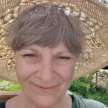
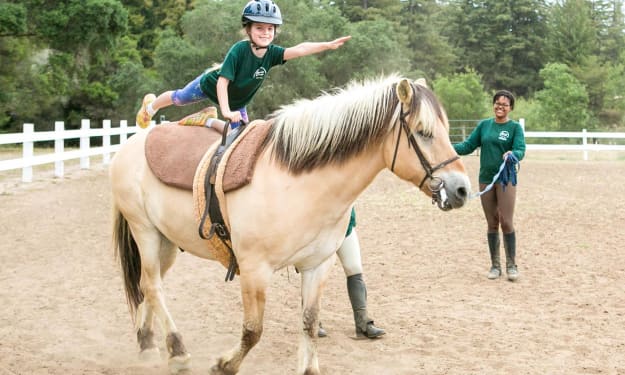



Comments
There are no comments for this story
Be the first to respond and start the conversation.